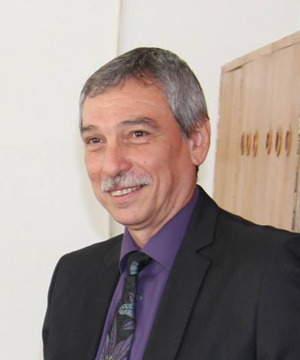The International Seminar of Bulgarian Language and Culture opened in Veliko Turnovo at the beginning of this week. It is organized by the Ministry of Education and Science, the St. Cyril and St. Methodius University in Veliko Turnovo as well as the city municipality. The forum opened exactly one week before the 53rd Summer International Seminar of Bulgarian Language and Culture at Sofia University St. Kliment Ohridski.
 “These seminars are taking place under a Ministry of Education public contract regarding foreign scholars and students of the Bulgarian language which the two universities are implementing,” explains Prof. Hristo Bondjolov, rector of Veliko Turnovo University and director of the international seminar for the past 10 years.
“These seminars are taking place under a Ministry of Education public contract regarding foreign scholars and students of the Bulgarian language which the two universities are implementing,” explains Prof. Hristo Bondjolov, rector of Veliko Turnovo University and director of the international seminar for the past 10 years.
“Interest in the seminar has continued high over the years. Every year there are around 100 participants from several continents. This year we have people coming from 32 countries on three continents – Europe, Asia and North America. The ages of the participants vary widely – from the youngest, 17 year-old Mila Solandjieva from Belgium, offspring of a mixed marriage to the oldest, 69 year old Dr. Koehl from Germany,” says Prof. Bondjolov. “There are all kinds of reasons why foreigners opt to study Bulgarian or spend two-three weeks in this country. Of course, they are mostly students doing Bulgarian in one form or another – as a second or third Slavic language or as part of their Bulgarian language and literature studies. Many lecturers working with Bulgarian communities around the world as well as translators, some of them working at the European Commission, also take part. They are all people who want to know more about Bulgaria perforce or simply out of curiosity. Not to mention officials from different embassies or cultural attachés. By a tradition the seminar is attended by the cultural attaché of Japan and this year is no exception. There is a wide range of people who want to study Bulgarian language and culture.”
The seminar programme opens with practical training and then the participants are offered 10 specialized modules depending on their interests and needs – in Bulgarian literature, contemporary Bulgarian language, Bulgarian art, cinema, history, mythology, ethnology, archaeology etc. The seminar also offers visits to historic landmarks, to the Black Sea coast, theme nights, concerts, food and wine tasting.
“One of the Bulgarian history and culture seminars is in English because the people who come to attend it do not speak Bulgarian and know nothing about the country,” says Prof. Bondjolov.
“Language is not the most difficult thing for foreigners. That is something I have seen with my own eyes over the years. What is most difficult for them is to understand what kind of country Bulgaria is – to them it is often something of a “wonderland”. Many of the things here are the exact opposite of the same things in their own world. Starting with the nod for NO and the shaking of the head for YES, for example. The way of thinking, the culture of the people living in the Balkans is so very different from Western Europe, the way we understand freedom and abuse of freedom here is very different from the order and the discipline that exist there. So, to my mind it is not the language that is the obstacle to our understanding one another, it is the way of life, but what matters most is that the will is there and the international seminar comes as proof of this. All of these people – this year they come from 32 countries – get to be inseparable friends after the three weeks are up. What is important to us is the atmosphere we create for them because we are here to understand each other and Bulgarian is one of the languages this can be done in.”
The seminar closes on 9 August.
English version: Milena Daynova
There is no exact statistic on the number of Bulgarians living abroad, but a report from the Ministry of Foreign Affairs from last year indicates that around 2.8 million Bulgarians are living outside the country . According to the 2021 population census..
The nature protection organization WWF - Bulgaria is launching a campaign entitled "Subscribe to Nature". The disappearance of wild animals is a series in which we play the main role. In less than one human lifetime, 73% of vertebrates in..
The Embassy of France and the French Cultural Institute brought together scientists to present their experience and the scientific challenges in Antarctica, as well as the fight against climate change. Partners of the event were the..
Over 3.5 million Ukrainians have arrived in or passed through Bulgaria since the beginning of the war. Nearly 200,000 people have found temporary..
At the Bulgarian Embassy in London, Prof. Bettany Hughes presented excerpts from the new BBC series - Wonders of Bulgaria. Prof. Bettany..
An innovation for the treatment of diabetic foot ulcer using the patient's own tissue and artificial intelligence has been implemented at the University..

+359 2 9336 661
